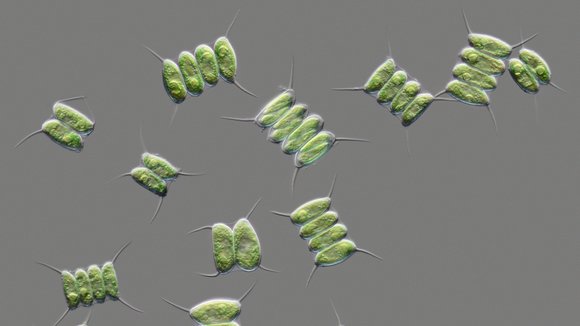Green waste
Microalgae are becoming more and more important in the biotechnology, for example in the production of an alternative for fossil fuels like petroleum and natural gas. Recent research has shown that algae are able to produce sustainable bio-oil with an efficiency of 85% to 90%. This bio-oil can be easily modified into gasoline or diesel fuel. To completely replace the use of fossil fuels, production of bio-oil should take place at a large scale. However, this gives rise to a new problem. During the production of bio-oil, algal residues accumulate. Large-scale bio-oil production will result in large volumes of algal waste.
Bio-asphalt
French researchers came up with the solution: they can use the algal residues to make biological asphalt. Currently, asphalt consists of a mixture of crushed stone, sand, a filler and sticky bitumen that binds all ingredients together. Bitumen has a unique quality. It is slightly elastic, which supports bearing heavy loads. The researchers made a biological binder with the algal residues that has the same sticky and elastic properties as bitumen. It even has the same black color, so you wouldn’t see the difference with the asphalt of today.

The green algae used for this research were species from the genus Scenedesmus.
In and on the roads
Today, the road building industry is entirely dependent on petroleum for the extraction of bitumen. Bio-asphalt is an attractive alternative. Not only is the production of this asphalt more environmentally friendly, it also offers a solution for large-scale production of bio-fuels by algae. In this way the researchers kill two birds with one stone. Both the roads and driving on them will become better for the environment.
Sources: ACS and EurekAlert!
Come see the large collection live microalgae in Micropia and discover how these microbes are used in the production of biofuels, proteins, vitamins, minerals, medicine, cattle feed and beauty products.
